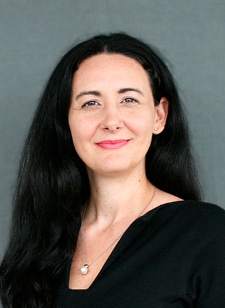
As the recent passage of the Infrastructure Investment and Jobs Act (IIJA) drives more federal, state and municipal agencies to seek out the services of economists to provide benefit-cost analyses and grant funding support, there’s nothing “unconventional” about what Patricia Macchi, national transportation economics practice leader, can bring to a project team.
However, as part of a recent panel hosted by the Washington, D.C., chapter of the Young Professionals in Transportation (YPT), “Unconventional Jobs in Transportation,” Macchi provided guidance about careers in our industry other than engineering.
“There’s no question how much my daily work has changed since the passage of the IIJA,” Macchi said. “We’re working with our clients regularly to help them develop strategies to go after funding for infrastructure work. However, for years, there has always been a place for conventional economics within the planning, design and construction industry. Having those business skills is very relevant and complementary and will continue to be going forward.”
Macchi joined STV last year, bringing her 20 years of transport economics expertise to our national planning group. In addition to grant support, such as a $20 million grant for Port of Philadelphia that STV’s team helped the client secure, Macchi’s analysis is being used to quantify and measure a project’s impacts on the environment, emissions reductions, housing market growth, wear and tear on the roads, and how many jobs it can contribute to the economy.
For this YPT panel, which was geared towards providing “young DC professionals interested in careers in transportation with diverse perspectives on unconventional job opportunities from government and industry,” Macchi was joined by political consultants, mapping analysts, and other professionals working in the transportation industry in engineering adjacent careers.
Macchi was asked about what her career path looked like, how does it match her educational background and how the IIJA is producing the need for more jobs in the industry beyond engineers.
“We were asked to bring a different perspective to the conversation,” Macchi said. “I was happy to help shine some light on potential careers people could pursue in transportation.”






